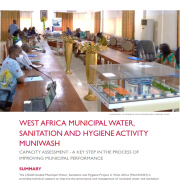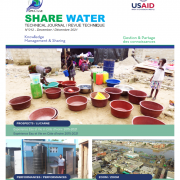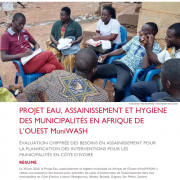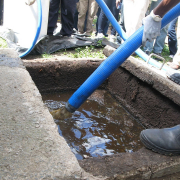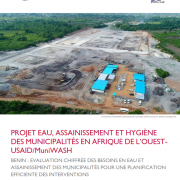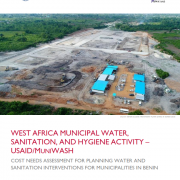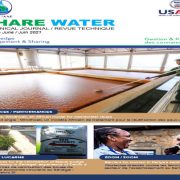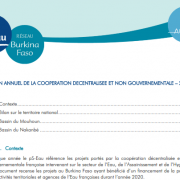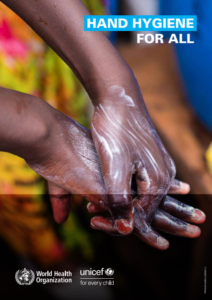CAPACITY ASSESSMENT – A KEY STEP IN THE PROCESS OF IMPROVING MUNICIPAL PERFORMANCE
The USAID-funded Municipal Water, Sanitation and Hygiene Project in West Africa (MuniWASH) is providing technical support to improve the governance and management of municipal water and sanitation services in 16 target municipalities in Benin and Côte d’Ivoire . To serve as a reference framework for the municipal capacity building program, the USAID MuniWASH project provides these target municipalities with a governance tool called the Institutional Strengthening Index (ISI). This tool is deployed in a three-step process as follow:
1. The municipalities self-assess their performance in providing Water and Sanitation services to their constituents.
2. Based on the findings of these self-assessments, the municipalities develop strategic Institutional Strengthening Plans (ISPs) to fill the capacity gaps identified.
3. Finally, the municipalities implement the ISPs for improved service performance.
During the assessment phase conducted in FY2021, the ISI identified deficiencies at the organizational and regulatory levels and in planning, citizen engagement, data management, and others. This learning note presents lessons learned during the initial application of the ISI in partner municipalities.

